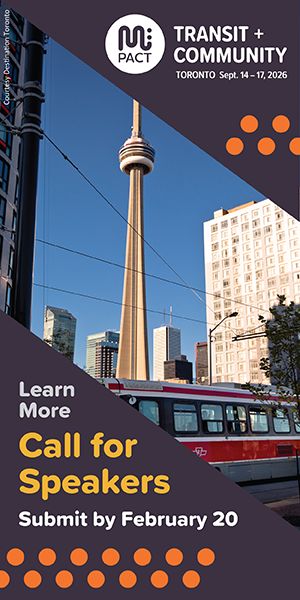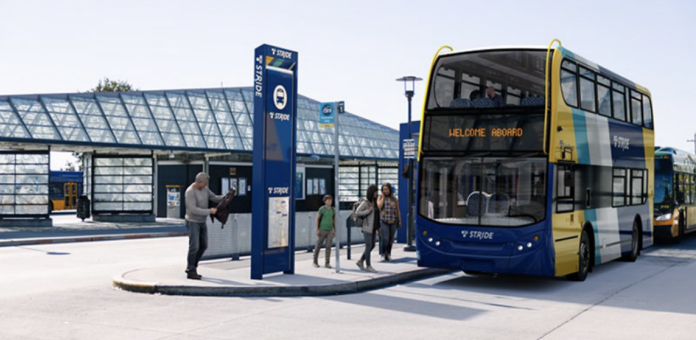
A Sound Transit board committee Thursday gave the green light to a $433 million contract with MV Transportation to handle both operations and maintenance responsibilities on its planned three-line Stride bus rapid transit (BRT) network. The award, if approved by the full board later this month and executed, would represent the first time that Sound Transit has contracted with a private bus operator to provide one of its core transit services.
Houston-based MV Transportation contracts with public transit agencies around the US, including King County Metro’s Access paratransit service. The company also operates private shuttles, and has managed shuttle operations for major Puget Sound employers like Amazon and Microsoft.
Under the potential contract, MV would be responsible for providing start-up services on Stride starting next year, including testing the agency’s new battery-electric buses, which are expected to start arriving within the first quarter of 2026. Because the Bothell bus base from which those buses will operate is still under construction, the contract includes $5.7 million in funding for MV to set up a temporary storage and maintenance facility.
While Metro operators are represented by Amalgamated Transit Union Local 587, MV Transportation’s drivers are unionized under Teamsters Local 117. The Teamsters have recently been active pushing for higher wages and benefits. In late 2024, members voted to approve a strike against MV, but it appears a deal was struck before the strike occurred.
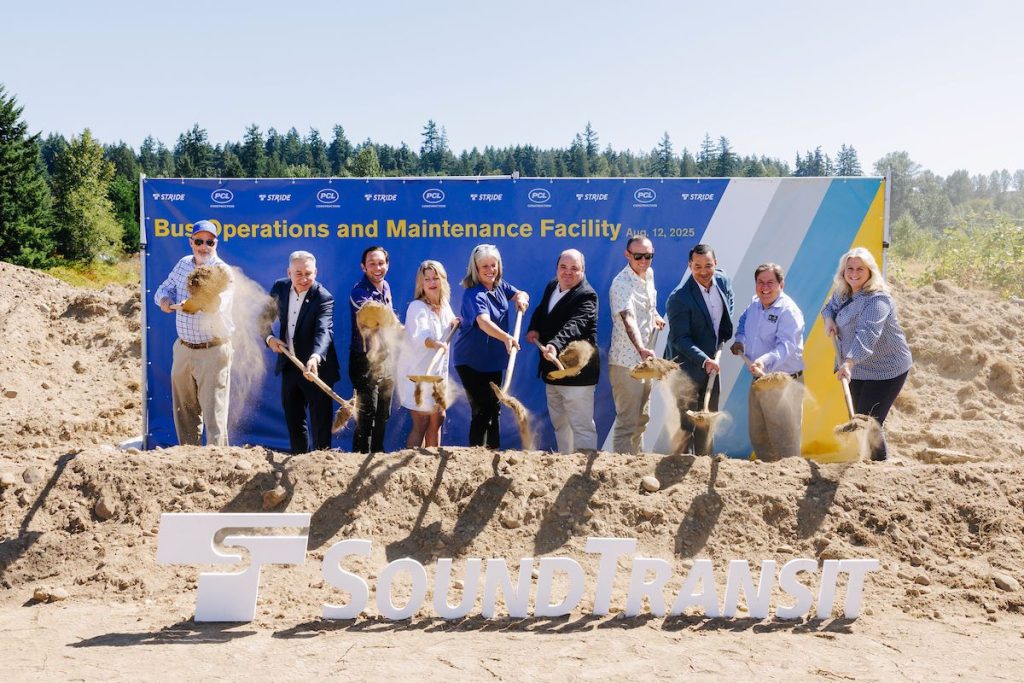
MV would also take over operations on all of the ST Express bus routes operating out Snohomish County, work that is currently handled by a subcontractor of local transit agency Community Transit.
To operate its Link light rail services and King County ST Express bus service, Sound Transit has traditionally contracted with King County Metro, rather than a private sector operator. Metro recently grappled with a labor shortage that hindered its ability to reliably provide service and boost frequencies, but a new three-year labor contract with a 17% raise approved in 2023 has helped stabilize the agency’s workforce.
“Under this new operating model, wherein the [contracted service provider] will run our Operations Control Center, schedule vehicle and operator shifts, drive and maintain the busses and dispatch service, Sound Transit will retain ownership of all fleet facilities and systems and manage the contractor’s work,” Lucien Bruno, Sound Transit’s Deputy Program Executive for BRT Operations, told the rider experience and operations committee. “During phase one, we will essentially be relying on the contracted service provider as consultants and leveraging their experience to perform critical startup activities to keep the program on schedule and ensure reliable operations.”
The highway-oriented Stride lines are set to operate 17 hours per day, running every 10 minutes during peak hours and 15 minutes off-peak. While those frequencies may draw riders at times of peak highway congestion, they likely won’t provide the same time of enticement to all-day users, especially given the fact that riders will spend their time waiting next to a noisy highway — sometimes directly in the median, as in the case of stations like NE 85th Street in Kirkland.
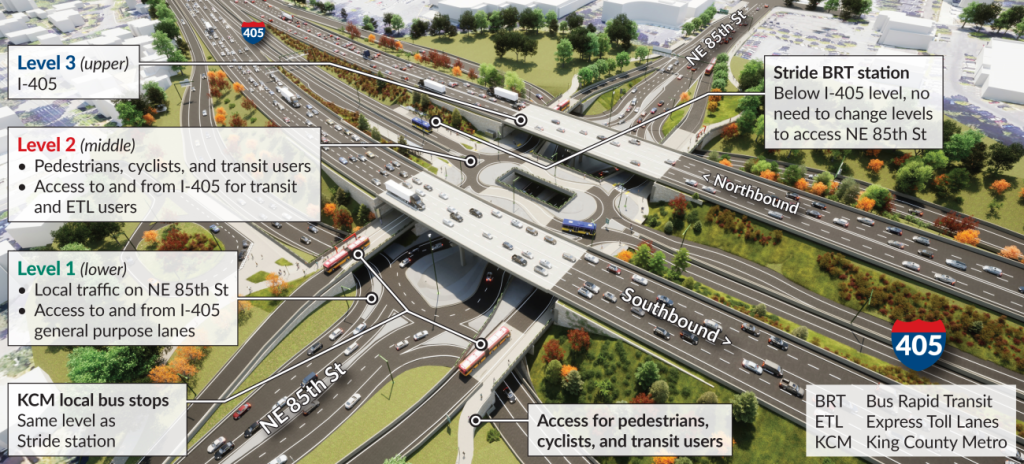
Sound Transit is on track to open two Stride lines in 2028: the S1 line between Burien and Bellevue, and the S3 line between Shoreline and Bothell. When those lines open, MV will begin operating them, along with ST Express bus service on other routes. In 2029, the third and final line between Lynnwood and Bellevue will open as the S2 line. According to the contract, MV will operate 164,000 annual platform hours for Stride and 80,500 annual platform hours for ST Express, with the ability for Sound Transit to tweak those service levels by 15% without having to renegotiate the contract. The contract terminates in 2032, with an option for three additional one-year options.
The contract will also allow ST to contract with MV to provide special bus services as needed, including planned shuttle service during the FIFA Men’s World Cup in June of 2026, and bus bridge service in the event of light rail disruptions.
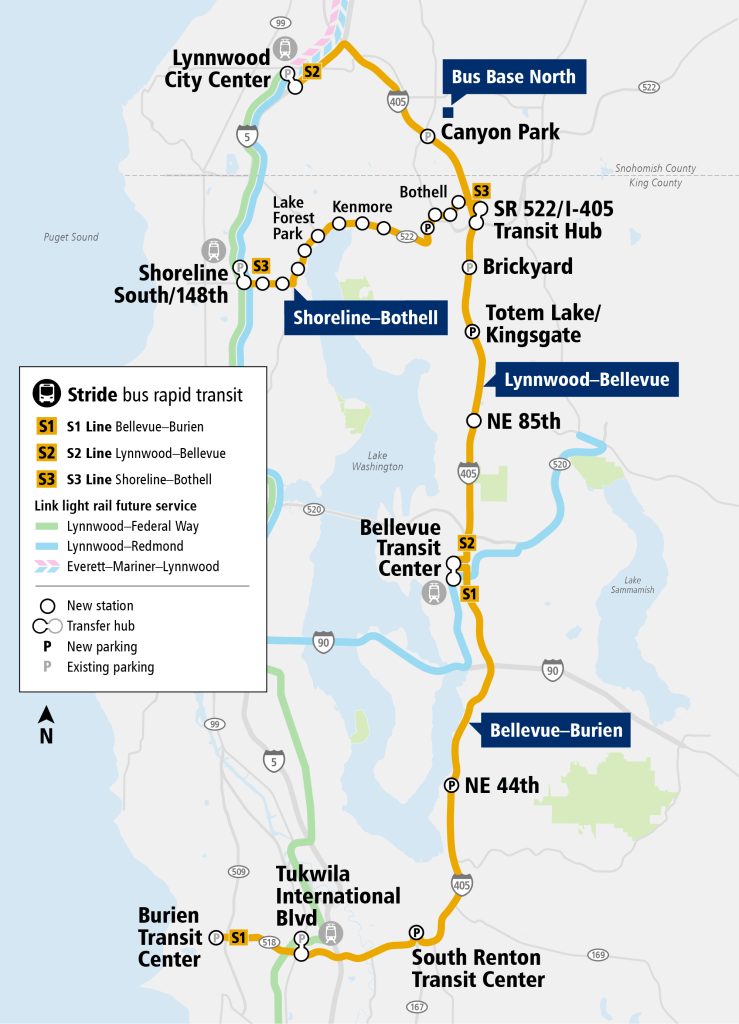
Like the Sound Transit 3 light rail extensions, the Stride lines have been subject to both significant cost overruns and delays. The BRT projects were intended to be some of the quickest projects to implement following voter approval of the entire ST3 package in 2016, originally pledged to open in 2024.
However, many of the planned roadway upgrades associated with the Stride projects are either currently underway or headed toward construction now, delaying the openings. Since they’re closer to fruition, the Stride projects haven’t been a major part of the so-called “Enterprise Initiative” work intended to allow the agency to grapple with a $30 to $40 billion budget shortfall through 2046.
As new lines open, operations costs like the MV contract will ultimately take up a larger and larger share of Sound Transit’s expense sheet. The agency is framing the move toward a private operator as a major step forward.
“As we look ahead, our focus is on building long-term operational capacity, setting the foundation for a successful and sustainable launch of the Stride service. The service delivery operations team is genuinely excited about what’s coming,” Benjamin Marx, Sound Transit’s Acting Executive Director of Service Delivery Operation, said Thursday. “We’re already thinking beyond just opening day, preparing for people, processes and systems we’ll need to deliver safe, reliable and high quality service from day one. We’re also taking this opportunity to strengthen the agency’s overall operational expertise, building our internal capacity and direct oversight, leveraging the knowledge we gain from our other service lines.”
Ryan Packer has been writing for The Urbanist since 2015, and currently reports full-time as Contributing Editor. Their beats are transportation, land use, public space, traffic safety, and obscure community meetings. Packer has also reported for other regional outlets including BikePortland, Seattle Met, and PubliCola. They live in the Capitol Hill neighborhood of Seattle.


